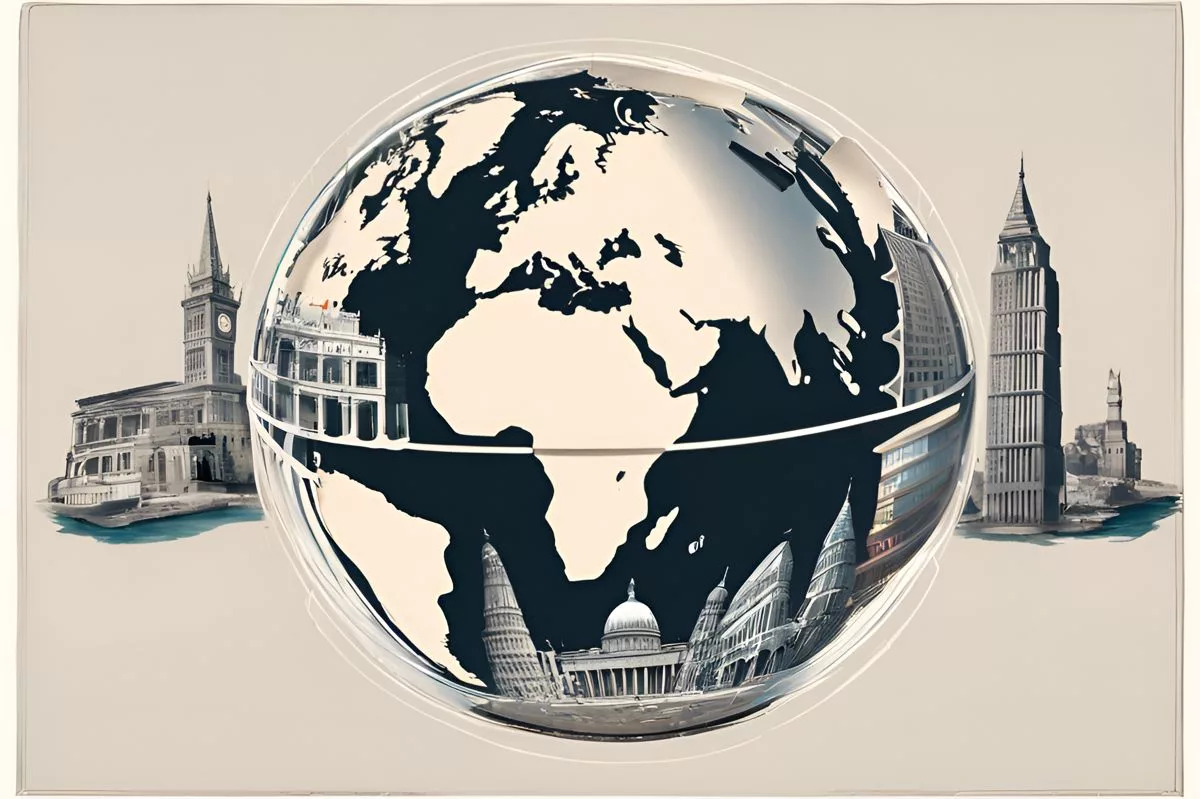At the South Africa-Ireland Business Forum, Deputy President Paul Mashatile painted a bright picture for the future, focusing on how both countries can work together to boost trade and create jobs. He celebrated the strong ties between South Africa and Ireland, urging leaders to embrace new ideas and build a business-friendly atmosphere that welcomes investment, especially in renewable energy and technology. Mashatile also highlighted South Africa’s political stability and rich resources, making it a prime destination for investors. He ended with a heartfelt invitation for Irish businesses to explore the many opportunities in South Africa, aiming to strengthen their partnership for a shared, prosperous future.
What is Deputy President Paul Mashatile’s vision for South Africa-Ireland collaboration?
Deputy President Paul Mashatile envisions a prosperous future through strengthened South Africa-Ireland collaboration. Key points include enhancing bilateral trade, fostering a business-friendly environment, and attracting investment in sectors like renewable energy and technology, ultimately driving economic growth and job creation.
A Historical Bond and Future Aspirations
In the refined setting of the Conrod Hotel in Ireland, Deputy President Paul Mashatile captivated the audience at the South Africa-Ireland Business Forum. This event underscored the longstanding relationship between the two nations, reflecting a joint dedication to growth and teamwork. Mashatile’s address was more than just a discussion of economic plans; it was a compelling narrative enriched with historical context, innovative ideas, and a collective vision for what lies ahead.
Paul Mashatile reminded attendees of the robust connection between South Africa and Ireland, built on shared principles and mutual admiration. This business forum served as a critical platform for enhancing bilateral trade and investment. The Deputy President emphasized the importance of being adaptive and innovative in our ever-changing economic environment. Leaders must create an atmosphere that encourages entrepreneurship and inclusive prosperity, ensuring that both nations can seize growth opportunities.
The Deputy President highlighted that this dialogue marked a significant step towards achieving a shared objective: a prosperous and sustainable future. The forum aimed to explore avenues for mutual benefit, underpinning the need for collaborative efforts in achieving economic development and stability.
Commitment to Economic Growth and Development
A key theme in Mashatile’s speech was South Africa’s unwavering commitment to fostering a business-friendly climate. This dedication is mirrored in Ireland’s values, and both nations stand to gain immensely from enhanced collaboration. South Africa is not just looking to attract investment; it aims to spur economic development and create employment opportunities. The focus on expanding exports of value-added goods and services was particularly noted as a significant area for potential growth.
The global pandemic had undoubtedly introduced obstacles, slowing down progress. However, Mashatile urged renewed energy in identifying strategies to boost international investment. The South African government is resolute in its mission to rejuvenate economic activities, aligning with Ireland’s own economic aspirations.
The Deputy President’s speech emphasized that South Africa remains a fertile ground for investment, with robust democratic foundations, quality infrastructure, and a diversified manufacturing base. These elements collectively position the country as a lucrative emerging market with favorable global access.
Pillars of Investment Attraction
Mashatile outlined compelling reasons for investors to consider South Africa. Since its democratic transition in 1994, the country has enjoyed political stability and peaceful elections, underscoring its strong respect for constitutional governance. This political steadiness, along with top-tier infrastructure and rich natural resources, makes South Africa an attractive destination for global investors.
South Africa’s status as Africa’s foremost financial hub and a center of innovation and technology was another highlight. Innovations such as the Kreepy Krauly automatic pool cleaner, the CAT scan, and the ambitious Square Kilometre Array (SKA) project exemplify the nation’s scientific and technological prowess. The SKA project, in particular, promises to be a significant driver of business opportunities, job creation, and innovation, potentially establishing South Africa as a global leader in big data and analytics.
The Deputy President also spotlighted the country’s diverse manufacturing base, which offers a wide range of investment opportunities. With a focus on expanding exports, particularly in value-added goods and services, South Africa seeks to enhance its competitive edge in the global market.
Economic Recovery and Sector-Specific Initiatives
In response to the economic disruptions caused by the global pandemic, South Africa has rolled out the Economic Reconstruction and Recovery Plan. This plan prioritizes infrastructure development, job creation, and local industrialization. The strategy is supported by a social compact involving government, business, labor, and various sector representatives, all working together to revitalize economic activity.
Mashatile provided insights into initiatives like Operation Phakisa and Operation Vulindlela. These initiatives aim to accelerate economic and structural reforms, thereby fostering job creation and development. They offer investors a variety of opportunities to participate in projects that drive industrial growth. The development of industry-specific master plans in sectors such as agriculture, renewable energy, and aerospace underscores the country’s commitment to enhancing the competitiveness of South African exports.
The Deputy President emphasized that these reforms are designed to create a more conducive environment for investment and innovation. By focusing on sector-specific initiatives, South Africa aims to attract investors and stimulate economic growth across various industries.
Energy Sector Overhaul and Opportunities in Innovation
Energy generation stands as a cornerstone of South Africa’s economic strategy. The government has announced measures to boost energy generation capacity, including the restructuring of Eskom, the national electricity supplier, into three distinct units: Generation, Transmission, and Distribution. The procurement of additional solar PV, wind power, gas, and battery storage through multiple Bid Windows reflects a robust commitment to expanding renewable energy sources.
Mashatile introduced the Hydrogen Economy as a transformative force in his speech. This sector promises to decarbonize value chains and secure energy supplies, aligning with South Africa’s economic transition goals for 2050. The Deputy President noted that investors are keenly exploring potential projects in this emerging sector, recognizing the vast opportunities it holds.
Beyond the energy sector, South Africa seeks cooperation in areas such as Food Tech, Global Business Services, Film, and Financial Technology (Fintech). Ireland’s expertise, particularly in the technology sector, could significantly benefit South Africa. Despite the attraction of many back-office service operations from foreign companies, Ireland’s involvement has been limited. Mashatile sees this forum as a pivotal moment to reverse this trend.
Exploring Diverse Investment Opportunities and the African Free Trade Agreement
The Fintech sector, rich in capital in Ireland, holds great promise for enhancing South Africa’s innovative capabilities. Collaboration between the two nations in the film industry could also lead to shared skills and resources, benefiting both sectors. The Deputy President urged Ireland to assist South Africa in successfully implementing projects in these areas.
Mashatile also highlighted the significance of the Africa Free Trade Agreement, effective since January 2021. Connecting 1.3 billion people across 55 countries with a combined GDP of $3.4 trillion, it represents the world’s largest free trade area. This agreement positions South Africa as a gateway to the African market, offering unparalleled opportunities for business expansion. The Deputy President encouraged foreign companies to invest in South Africa, leveraging the free movement of goods, services, and people across the continent.
A Call to Action and Collaborative Future
In his closing remarks, Mashatile extended a warm invitation to Irish business leaders to explore the multitude of opportunities in South Africa. He emphasized that the invitation went beyond business, encouraging them to experience the country’s rich cultural heritage and natural beauty. The Deputy President expressed confidence that the forum’s discussions would ignite new ideas, foster partnerships, and unlock collaborative opportunities.
Mashatile’s address was a powerful reminder of the shared potential for a prosperous future. By working together, South Africa and Ireland can fully harness their partnership’s potential, leaving a legacy of shared success and prosperity for future generations.
FAQ
What is Deputy President Paul Mashatile’s vision for South Africa-Ireland collaboration?
Deputy President Paul Mashatile envisions a prosperous future through enhanced South Africa-Ireland collaboration. His focus includes boosting bilateral trade, fostering a business-friendly environment, and attracting investments in sectors like renewable energy and technology, all aimed at driving economic growth and job creation.
How does Deputy President Mashatile describe the relationship between South Africa and Ireland?
Mashatile emphasizes the strong historical bond between South Africa and Ireland, built on shared principles and mutual respect. He believes that this longstanding relationship serves as a foundation for collaboration that can drive growth and innovation for both nations.
What strategies did Mashatile propose to attract investments to South Africa?
Mashatile outlined several compelling reasons for investors to consider South Africa, including its political stability, quality infrastructure, rich natural resources, and its status as Africa’s financial hub. He highlighted the importance of sector-specific initiatives and the government’s commitment to creating a conducive environment for business and innovation.
What initiatives are being implemented in South Africa to support economic recovery?
In response to the challenges posed by the global pandemic, South Africa has rolled out the Economic Reconstruction and Recovery Plan, which prioritizes infrastructure development, job creation, and local industrialization. Initiatives like Operation Phakisa and Operation Vulindlela aim to accelerate structural reforms and foster job creation across various sectors.
What opportunities exist in South Africa’s energy sector?
The energy sector is central to South Africa’s economic strategy, with plans to boost energy generation capacity through the restructuring of Eskom and the procurement of renewable sources such as solar and wind power. Additionally, the Hydrogen Economy is identified as a transformative force, presenting numerous investment opportunities in decarbonization and energy supply security.
How can foreign companies benefit from the Africa Free Trade Agreement?
The Africa Free Trade Agreement, which connects 1.3 billion people across 55 countries, positions South Africa as a gateway to the African market. This agreement allows for the free movement of goods, services, and people, offering unparalleled opportunities for foreign companies to expand their businesses across the continent. Mashatile encourages foreign investment in South Africa to leverage these opportunities.












